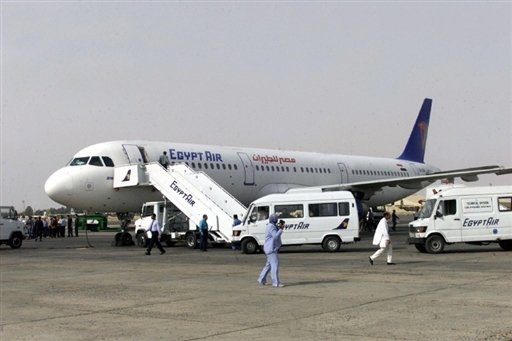CAIRO: Expecting to start “full investments” in Egypt by early next year, the European Bank for Reconstruction and Development (EBRD) stressed the urgency for a civilian government in Egypt.
“We absolutely want to be doing business with a civil[ian] government that will take this country on the path of democracy,” Jon Charles, communications director for the EBRD, told Daily News Egypt on the sidelines of a conference Monday.
After convening with some of Egypt’s top economic experts and youth leaders to discuss the country’s development after the January 25 uprising, the EBRD drafted a list of projects that are of “top priority” moving forward.
EBRD officials met with several members from youth coalitions as well as the April 6 Youth Movement, all of whom voiced concern about the direction of the country under military rule.
“We’ve spent time with these youth who are very passionate about change, it has been uplifting to sit with them,” said Charles. “But they’ve also voiced several concerns about the current uncertainty… I said to them that our help is tied to the democratic progress.”
The bank stressed that it would be difficult to achieve these goals without a civilian, democratic government in place.
“We are having a lot of policy dialogue with the current leaders, as long as Egypt remains committed to democracy we will continue to be supportive,” he said.
Charles pointed out that in a matter of weeks, the bank would be begin working with members of civil society, private and public institutions, as well as economic experts to help local businesses move forward in this murky economic period.
Underlining that instability is quite normal in this difficult transition period, Charles added it is vital that the country continues moving towards the “right path.”
“What Egypt is going through is quite normal. There is a fair amount of chaos, rebuilding an entire society is a messy business… It would be remarkable if there wasn’t any turmoil as the country moves towards a post-Mubarak economy,” Charles added.
Officials decided that Egypt’s economy, which has been battered over the past nine months, will need to focus on boosting small and medium enterprises (SME’s) as well as providing new housing developments, in order to speed up recovery.
With current inadequate legislative laws to support and facilitate business for local SMEs, after convening with the EBRD and addressing their concerns, the panel of Egypt’s economic experts concluded that new labor laws and credit availability for SMEs will be a top priority.
“We suggest that a national council for the SME core should be established and we will push for this,” said Magda Kandil, executive director of the Egyptian Center for Economic Studies, who was also one of the panelists.
“Financing SMEs is very important. They still face same problems that they faced before the uprising,” said Kandil. “We suggest establishing a pool fund at banks which would be specifically for SMEs.”
The group also stressed that establishing housing projects and linking water as well as energy efficiency to a national housing program would be a priority over the coming months.
“What we will do with all of these ideas is take them back to London and decide which ones are practical,” said Charles.
“By the end of November, we will bring in ministerial leaders from Egypt, Tunisia, Morocco and Jordan to discuss what was decided on in the meeting in order to build some of these ideas into each country’s strategy.”
Kandil added that it is important to establish a center where transparent data regarding SMEs can be recorded.
“We cannot talk about 70 or 80 percent of the economy without any transparency when it comes to information, we also need to adhere to a formal definition of SMEs,” Kandil added.
Charles told DNE that one of the bank’s top priorities would be to support SMEs because it a unanimous concern among Egyptian business officials as well as economic experts.
“SME’s are the key to economic growth and job creation — also foreign investors will not come in if the country’s local investors have lost confidence to do business,” he added.
The EBRD could support establishing a bank specifically for SMEs or working with local banks to give small enterprises the credit they need to start up businesses, he said. The EBRD would establish certain criteria for the loans.


